I doubt anyone will be surprised that, as a mama of ten, I have heard quite the smorgasbord of comments about my crew when we’re out and about. A few of the top contenders will sound familiar to anyone with more than one child close in age:
“Are they all yours?”
“You know what causes that, right?”
“Same dad?”
And the ubiquitous-to-the-point-of-groan-worthy, “Bless your heart, your hands are FULL.”
Very few of them bother me. Sure, they’re intrusive, and depending on the tone, a few might make my hackles rise a bit. But, in general, I take the interactions in stride with the knowledge that as a much-larger-than-average family, we’re prime targets for these types of encounters.
Also, most people mean no harm; they’re simply intrigued. Even when the delivery is clunky, I think the intent is to encourage or, at the very least, engage neutrally.
My goal every time is to smile and declare what a joy my children are to me because regardless of the intent of strangers, their words are never going to carry as much weight as mine. And even when they seem like they’re not, kids are hearing, absorbing, and pondering the messages we convey to the world about them.
Sadly, I’ve noticed a trend toward assuming that kids will “know what we really mean” even if we are explicitly negative to and about them. At Christmas, we playfully ruffle their hair as we tell others about how we can’t wait until they can go back to school and get out of our hair. We chuckle good-naturedly as we declare, “the little monsters are taking my last shred of sanity.”
And that’s if we’re being nice.
After observing me with my twin babies in the grocery store, a father once told me IN FRONT OF HIS LITTLE GIRL, “I only have one, and that’s too many sometimes.”
The disturbing thing is that when I shared this story on social media, with an exhortation to speak words of life and encouragement in front of our kids, some were upset that I didn’t validate the dad’s words.
“Obviously, she knew he was kidding,” one commenter said. “Parenting is hard. How dare you come down on him for simply acknowledging that.”
The thing is, there is quite difference between saying, “Kids are a lot of work, and I don’t get a ton of sleep, but I wouldn’t trade it for anything” (which absolutely acknowledges the hard without placing a feeling of burdensomeness on the child) and “My ten-year-old is a whiny nightmare. Anybody else feel this way?” (that was an actual social media post I stumbled upon, with hundreds of affirming comments, that for sure acknowledges the hard but without any redemption).
Another comment I received on my above post helped to further cement in my mind just how damaging our careless words can be. This commenter described in detail the way her mother had made cutting remarks about her in her presence—often with an “affectionate” arm slung around the girl’s neck or a “loving” tweak to her nose—words of rejection and casual cruelty. Words like, “I have two girls, but I sometimes wish my oldest daughter were an only child” (this commenter was the younger daughter) or “Bless her heart, but she just can’t shut up.” The commenter traced a direct line from the repetitive instances of verbal putdowns to her own chronic low self-esteem and unwise attention seeking that eventually led to drug abuse, promiscuity, and gang activity.
I don’t tell this story to strike fear into the heart of every mama who has ever said something careless and unkind in her child’s presence (um, that’s all of us) that their kids will end up joining the Bloods or the Crips because they blew off steam in front of them. I simply bring this up as a reminder that words are weighty things. They have the ability to anchor our children’s sense of worth and to convey, through our approval and encouragement, the same loving affirmation they will receive from their Father in Heaven. Conversely, they have the power to crush our kids’ spirits beneath the cumulative weight of years of offhanded remarks and “justifiably” lost tempers.
Yes, raising kids can be hard. But hard is not the same thing as bad. And simply acknowledging the hard doesn’t tell the whole story.
Instead, may we remember the best part of the whole story: “While we were still sinners, Christ died for us.” Romans 5:8
May his grace-filled response inspire our own! And may we never forget: “The tongue has the power of life and death, and those who love it will eat its fruit.” Proverbs 18:21
“With the tongue we bless our Lord and Father, and with it we curse men, who have been made in God’s likeness. Our of the same mouth come blessing and cursing. My brothers, this should not be!” James 39:10
***
The above excerpt is from the new book M is for Mama by Abbie Halberstadt. Abbie, a mother of ten, encourages women to reject the cultural lies of mediocre motherhood and strive for biblical truth and excellence as a mom. You can read more about Abbie below or visit misformama.net for more details.
Abbie Halberstadt is a writer, fitness instructor, and mama of ten children, including two sets of identical twins. Abbie lives by the motto that “hard is not the same as bad” and encourages woman to dig deep to meet the challenges of everyday life through her blog and Instagram posts. She, her husband, Shaun, and their children live in the Piney Woods of East Texas.

This message is the truth. Thank you for sharing it.